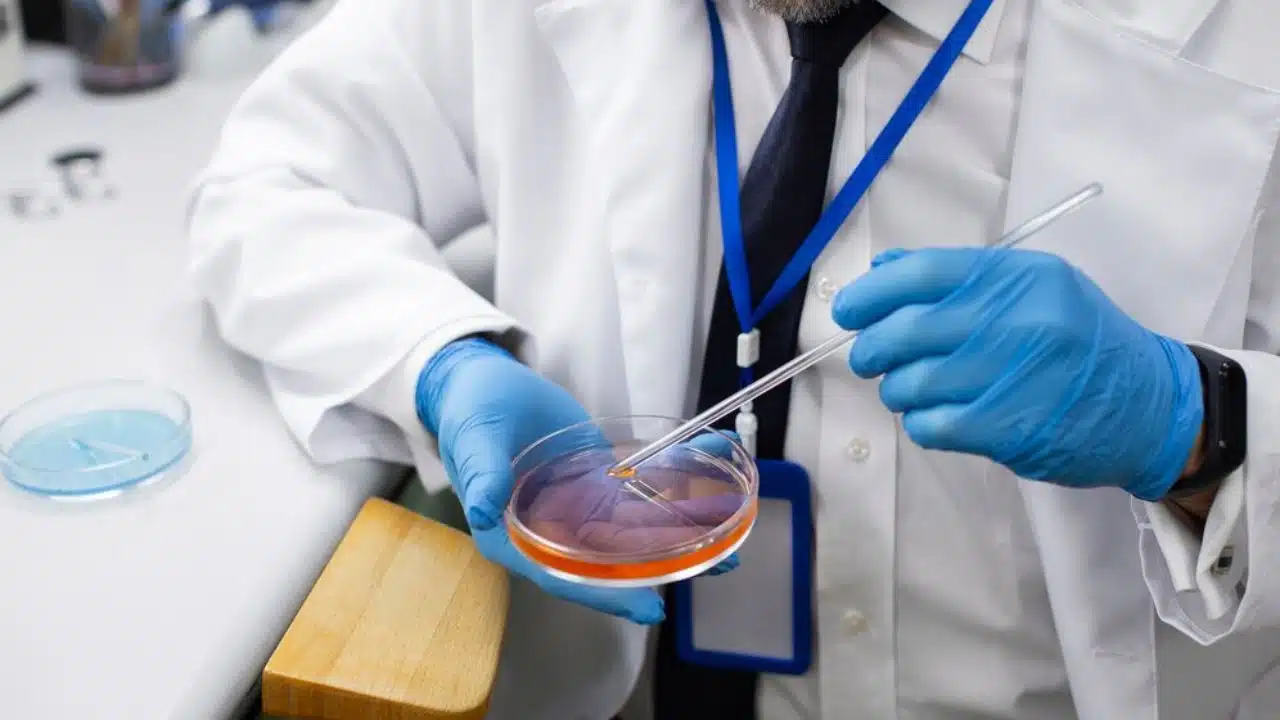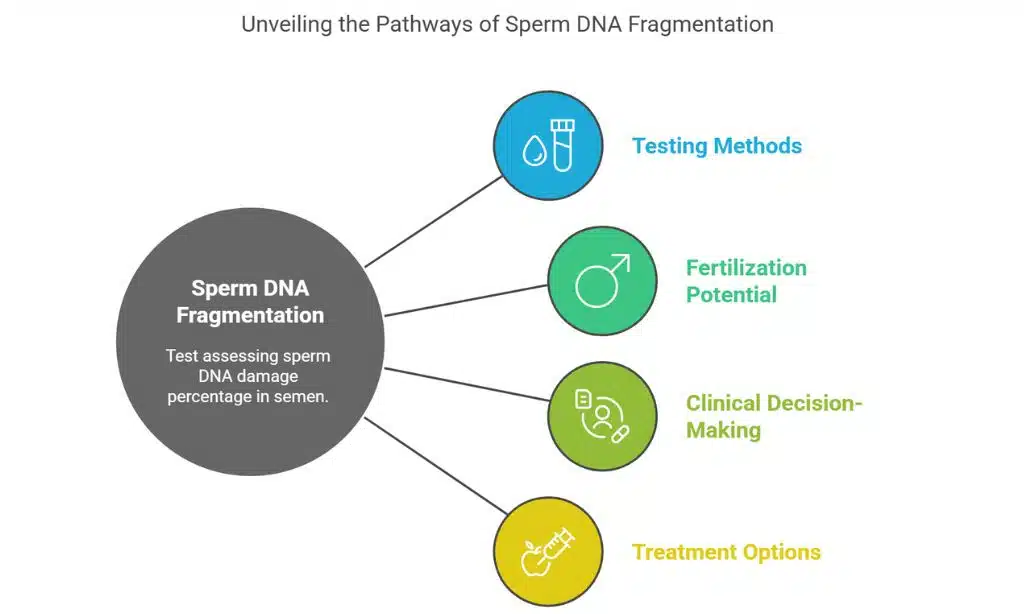When it comes to assisted reproductive technologies, many factors can contribute to success rates. A relatively common but underappreciated cause of male sub-fertility that’s attracted increased attention in the last decade is sperm DNA fragmentation. In this post, we review the role sperm DNA fragmentation testing plays in predicting IVF with ICSI outcomes and discuss the implications for people trying to conceive. Let’s take a closer look.
About Sperm DNA Fragmentation
Sperm DNA fragmentation is an important type of alteration that occurs in sperm DNA. These defects can disrupt sperm-oocyte interactions and early embryonic development, minimizing the chances of a successful pregnancy. Sperm DNA fragmentation may have diverse causes, including oxidative stress, lifestyle, and environmental factors. When couples are unable to conceive after many tests, or if IVF fails repeatedly, doctors might commence an assessment of sperm DNA integrity. If this issue is diagnosed and fixed, fertility specialists can provide treatments that can be tailored to maximize the chances of conception in IVF with ICSI.
Importance of DNA Fragmentation for IVF Outcomes
There is ample evidence of sperm DNA fragmentation as a predictor of IVF outcomes. Fragmentation has been correlated with decreased fertilization, impaired embryonic development, and pregnancy failure. Due to this relationship, many fertility clinics now include sperm DNA fragmentation testing in the series of assessments that are part of the full workup.
Understanding the extent of the damage to sperm DNA could allow professionals to make crucial decisions in some cases. Gaining this knowledge facilitates more accurate interventions, which may improve the chances of successful conception and healthy pregnancy outcomes.
Testing Process of Sperm DNA Fragmentation
Sperm DNA fragmentation is a test that examines a semen specimen and determines what percentage of the sperm has damaged DNA. Different methods are utilized, such as the Sperm Chromatin Structure Assay [SCSA] and the TUNEL assay. These tools allow measurement of DNA fragmentation and provide helpful information about fertilization potential, which can assist in clinical decision-making regarding fertility treatment. Test results guide clinicians during treatment selection. High fragmentation levels may be associated with lifestyle changes, antioxidant therapies, or ICSI, depending on the challenges hampering conception.
ICSI Is a Targeted Approach
ICSI, or Intracytoplasmic Sperm Injection, is a focused solution for people with male sub-fertility problems, such as DNA fragmentation. In this process, one sperm is directly injected into one egg, bypassing natural barriers that block sperm from fertilizing eggs that may be damaged with DNA.
ICSI is especially useful in instances where DNA fragmentation creates significant roadblocks. It assists embryologists with selecting sperm with the highest potential for egg fertilization and developing a healthy embryo, thereby strengthening IVF success rates in general.
Probability of Success with Specific Interventions
Doctors can perform specific interventions in couples implanted using In Vitro Fertilization [IVF] with ICSI to give them a higher chance of success. Several lifestyle changes, such as a healthy diet, smoking cessation, etc., could lead to a considerable decrease in fragmentation. Moreover, antioxidant supplementation has already demonstrated the ability to reduce DNA damage, making it a potential approach to improving fertility.
In cases where fragmentation is significant, advanced procedures, such as Testicular Sperm Extraction [TESE], may present practical options. TESE involves extracting sperm from the testes, which may be the healthiest DNA available for IVF, overcoming the problem of fragmented genetic material.
Ways to Help Reduce Emotional Pain
Pregnancies are not only about joy; they also bring emotional turmoil and confusion, particularly when people must deal with fertility issues. People who understand the role of sperm DNA fragmentation testing can make informed decisions as they have more knowledge. They can explore treatment options based on these insights. Assistance from medical professionals, counselors, and support groups can relieve some pressure, enhancing strength and emotional health during the IVF process.
Support systems are a crucial element in helping people navigate the challenges of assisted reproductive technologies. Emotional wellness goes a long way in determining success, and it is essential to seek both physical and emotional support when undergoing fertility treatments.
Conclusion
A sperm DNA fragmentation test is a crucial step to maximize the chances of IVF with ICSI success. Recognizing and solving this primary issue gives people a better chance of raising the family they always wanted. As tests and treatments continue to improve, the future of assisted reproductive technology looks bright and hopeful for those who want to grow their families.





































